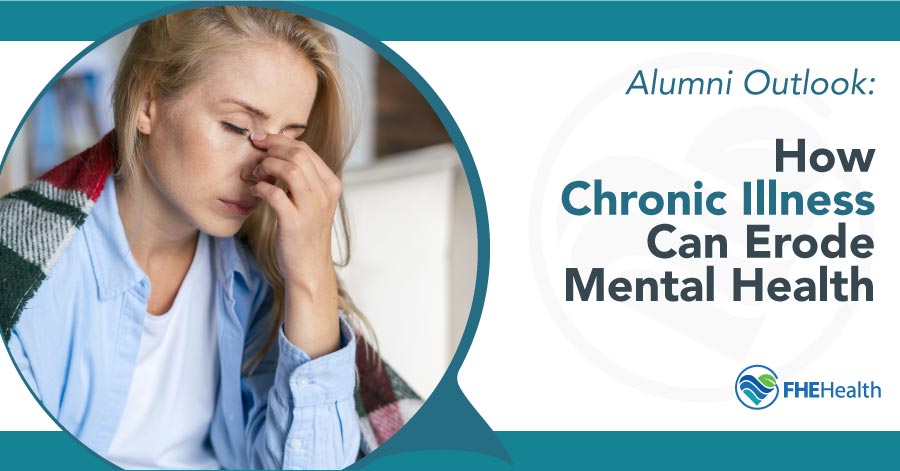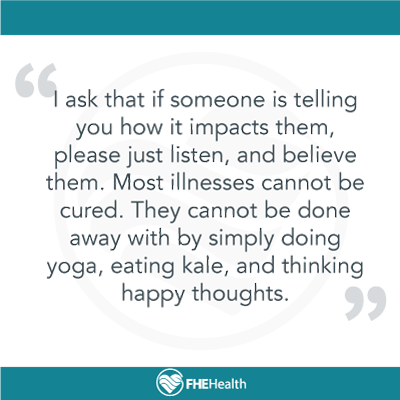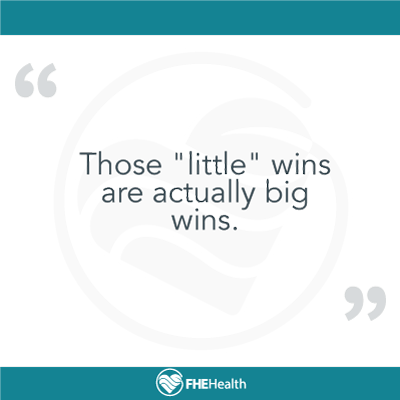
I met Santa last year. He asked what I wanted for Christmas, and I told him a sparkling unicorn. He told me to be realistic. So, I asked for a cure for just one of my chronic illnesses. Santa laughed and asked what color I wanted my unicorn.
I find myself truly grateful for sarcasm when it comes to navigating chronic illness. Some days, it’s the only thing that helps me get through the day. I have a whole long list of diagnoses. Some days they impact my life and other days are smooth sailing. It’s like spinning the “lucky” wheel at the fair. I don’t know what I will get, and it probably won’t be the prize I want.
Medical Gaslighting
Living with chronic illness can have a negative and eroding impact on mental health. Medical gaslighting doesn’t help. Medical gaslighting is when you present with symptoms, but a medical professional dismisses them and blames them on things like weight or anxiety. This is not to say that weight struggles and anxiety don’t cause issues. But when blamed solely on those, it can be medical gaslighting.
I remember when I lived in my small hometown and had to go to the ER for an allergic reaction. I was told I had a “panic attack” and needed to take deep breaths despite the hives all over my face and upper body. I had to use a second EpiPen just to get the care I needed. That was one of my worst experiences and made me question if I was even worth fighting for. It got to the point where I brought my husband with me to every appointment because doctors would listen when I had a male with me. As a result, I don’t go to the ER until it is life and death, and I don’t trust most doctors.
Shame
 As a result of gaslighting, I developed quite a bit of shame. Add this to the shame I already carried from trauma; I was a walking billboard for shame. I began to think that I was just “not trying hard enough.” Since I didn’t have a diagnosis at that time, I felt that my symptoms were completely invalid. The days that I couldn’t walk were days I just wasn’t “trying hard enough.” The days I passed out were days I was “too anxious.” The days I couldn’t think due to brain fog were days I was “too stupid.”
As a result of gaslighting, I developed quite a bit of shame. Add this to the shame I already carried from trauma; I was a walking billboard for shame. I began to think that I was just “not trying hard enough.” Since I didn’t have a diagnosis at that time, I felt that my symptoms were completely invalid. The days that I couldn’t walk were days I just wasn’t “trying hard enough.” The days I passed out were days I was “too anxious.” The days I couldn’t think due to brain fog were days I was “too stupid.”
Chronic illness, diagnosed and undiagnosed, can affect your ability to function. For me, it took away my ability to work a “normal” job and to work the hours needed to pay all the bills. I had worked so hard to get off-state assistance, but my illnesses required I asked for it again. I had found a job in marketing that I loved and was very good at. Chronic illness took that away from me. I felt ashamed. I felt less than others and had so much more negative self-talk that increased my already existing depression.
Depression
Depression takes a lot of work to navigate without physical health compounding it. For me, I navigate my depression with exercise and food. When I am in a flare-up, I literally cannot do that stuff. When my POTS (Postural Orthostatic Tachycardia Syndrome) is showing off, I struggle to walk from one end of the house to the other without passing out. The brain fog is so intense that even binging my favorite shows requires too much thinking.
Depression makes it difficult to do day-to-day care, like taking a shower and leaving the house for a breath of fresh air. Yet when you have a chronic illness that forces depression-like behavior, the two can feed each other and become a nasty cycle. One could say that changing that requires positive thinking. Yet how do you think positively when constantly experiencing the anxiety and fear that come along with chronic illness?
Fear and Anxiety
I think that this is the most challenging part of living with chronic illness. There is so much valid fear and anxiety that goes along with it. In my existence with chronic illness, I never know what each day will bring. Having a spouse with one of the same illnesses (POTS) makes it doubly unpredictable. How long will my muscles hold me up? After I get my daytime responsibilities done, will I be able to parent like I want to when my children get home? Will I be able to make dinner without having to sit multiple times? Will I have an allergic reaction to dinner? Will dinner make my stomach upset and cause hours in the restroom? Will I be able to do the things that help my mental health? Is it even worth it if it will only last a few hours or days at the most?
These things cross my mind with every decision I make in my day. I am not alone in this. People with chronic pain must be able to navigate pain that would make the average person cry for relief. How do you live life if you don’t know your pain level that day? What if you have a horrible flare-up and need genuine relief? Will you be heard and helped or labeled as simply a “drug seeker?” How do you live life and take care of mental health while never knowing what the day will bring?
Reality is Different
 The reality of chronic illness is that it changes everything. There is no set manual to navigating it because, despite consistent diagnostic criteria, the illness causes various symptoms. For example, my husband and I both have POTS, but we have different types of POTS, so it impacts us differently. We have other co-occurring illnesses that flare up our POTS differently. No two people are the same in how their conditions show up or in how to treat them.
The reality of chronic illness is that it changes everything. There is no set manual to navigating it because, despite consistent diagnostic criteria, the illness causes various symptoms. For example, my husband and I both have POTS, but we have different types of POTS, so it impacts us differently. We have other co-occurring illnesses that flare up our POTS differently. No two people are the same in how their conditions show up or in how to treat them.
Living with chronic illness has a significant impact on mental health. I could write another article or two on this topic. It can be very damaging not to be heard by medical professionals and even family and friends who simply don’t get it. Chronic illness can cause shame, depression, fear, and anxiety, which is different because the source is different.
If you are a person who does not live with chronic illness, chances are that you know someone who does. I ask that if someone is telling you how it impacts them, please just listen, and believe them. Most illnesses cannot be cured. They cannot be done away with by simply doing yoga, eating kale, and thinking happy thoughts. Please do not tell them what to do to “get better.” Rather, celebrate the “little wins” with them. Those “little” wins are big.
If you live with chronic illness, please know that I see you. Your illness or illnesses may cause you to feel unseen, unheard, and unworthy. But I promise that you are worth being seen and heard, and you are worthy of life. You are not alone. Your illness is a part of your existence, but you are not your illness. It’s ok to do the safe things that help, and it’s ok to take a nap. It’s ok to ask for help. You are worth it.






